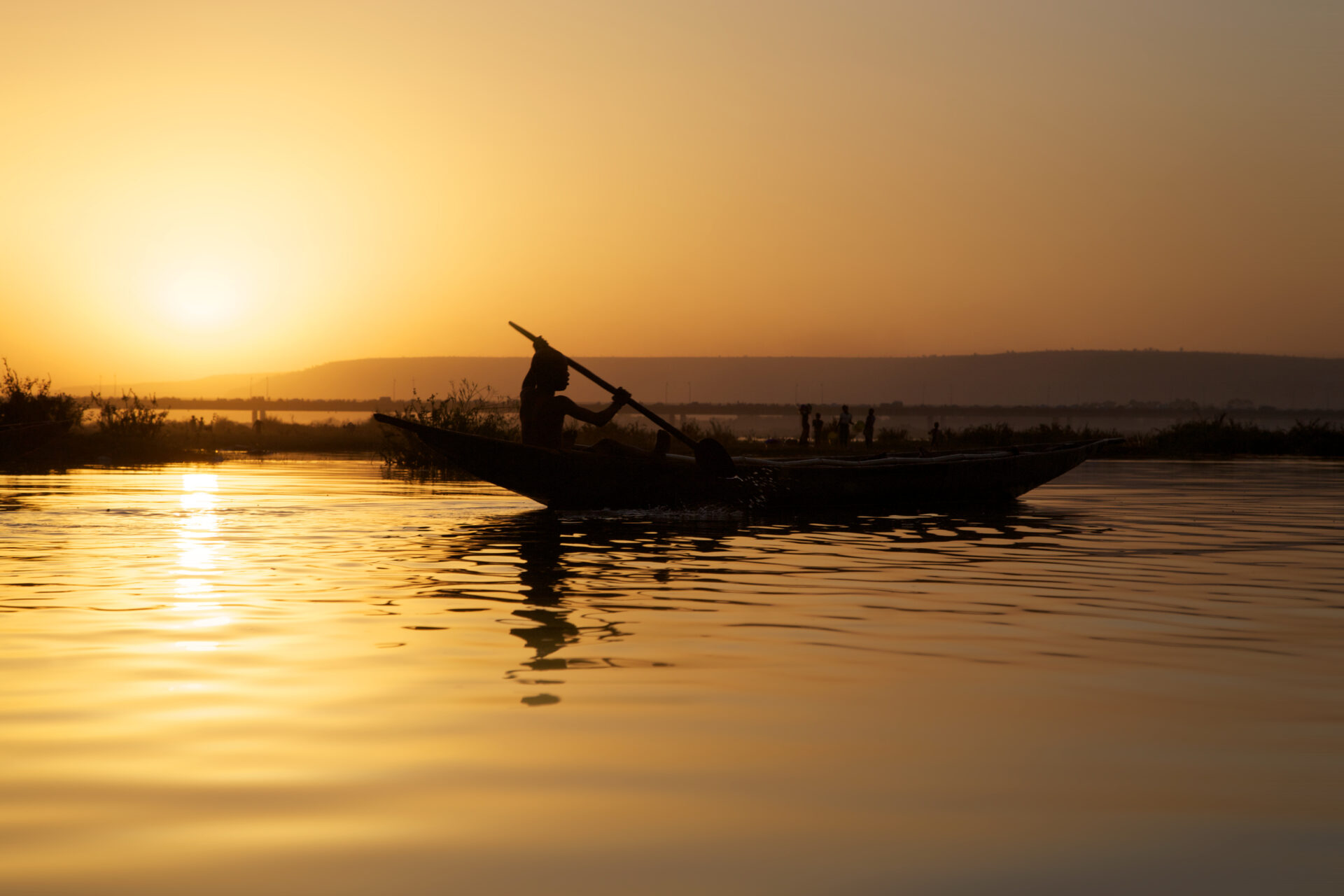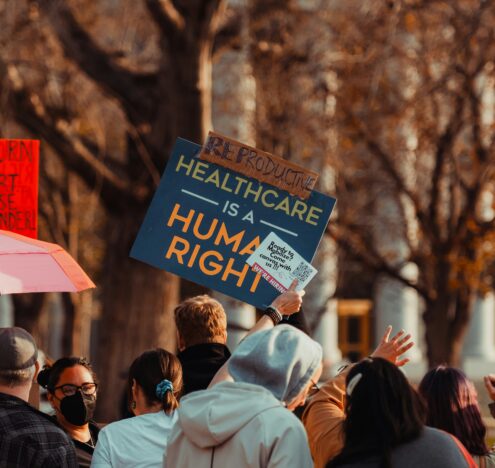Officers of the Presidential Guard have ousted Niger’s democratically-elected President Mohamed Bazoum, citing “ongoing deterioration of the security situation” as a justification. The coup, which unfolded between Wednesday, July 26, to Friday, July 28, 2023, has sent the Sahel — one of the poorest and most troubled regions of the world — reeling with anxiety and tension.
After a tense two days of a power vacuum, General Abdourahmane Tchiani was unveiled as the “president of the National Council for the Safeguard of the Fatherland” on state television on Friday, July 28, 2023. The army, which had initially struck a discordant tune, immediately rallied behind him.
Just like in Bamako two years ago, spontaneous celebrations have broken out in Niamey since the coup. On Thursday, July 27, 2023, protesters brandishing Russian flags set fire to the headquarters of the Party for Democracy and Socialism, Bazoum’s political party. Some ruling party politicians were also attacked while cars and buildings have been torched.
Tchiani was the head of the Presidential Guard and had served President Mahamadou Issoufou before Bazoum. Several reports claimed Tchiani had quashed coups in the past, including an unsuccessful coup attempt shortly before the democratic transfer of power in 2021. He was meant to be replaced by the deposed president in a steady clean-up of his inner circles, but this, as it turns out, is not to be. Bazoum has remained in detention since Wednesday, July 26, 2023, and his condition is yet unknown.
The Coup Sets Niger Back
One of the poorest countries in the world, Niger has seen four coups and countless attempts to take power since gaining independence from France in 1960. Bazoum came to power two years ago in a rare peaceful democratic transition. Since then, he had been working to stabilize his rule while working closely with Western powers, including former colonizer, France, to incentivize the fight against terrorism in the Sahel. According to Russian news agency, TASS, Bazoum was not on the list of African leaders invited to attend the Russia-Africa summit held from July 27-28, 2023, in St. Petersburg.
Bazoum’s overthrow has dashed hope that Niger, the landlocked country that borders Algeria, Nigeria, Chad, Burkina Faso, Mali, and Benin, could be an anchor of stability in the troubled Sahel region. The country has been a loyal partner of France, Germany, and the European Union (EU) in the fight against terrorism in the Sahel and illegal migration. At least 1,500 French soldiers have made Niger their new home following the expulsion of “Operation Barkhane” from Mali, while just recently, the EU launched a three-year military mission called the EU Military Partnership Mission in Niger (EUMPM for Niger) to combat terrorism in the Sahel. Also involved in the mission is the German army Bundeswehr, which has about 100 soldiers currently stationed in the capital Niamey.
The Last Man Standing
Although Niger, a vast, arid state on the edge of the Sahara desert, has a checkered political history, the coup last week has caught everyone by surprise, including Western powers who had seen the country as a lynchpin against the growing wave of democratic backsliding flowing across the region.
“Niger was the West’s strongest anti-authoritarian and anti-jihadist partner in the Sahel,” Dr. Catherine Bolton, a Professor of Anthropology and Peace Studies at the Joan B. Kroc Institute for International Peace Studies, University of Notre Dame, observes. But in politics, appearance sometime is deceptive.
“Military leaders in Africa are as savvy about current political affairs as military leaders anywhere — they see that with the current fearful global climate and misinformation that is opening doors to fascism everywhere, that a good reason or a solid opening is not necessary for a coup; they just need to fabricate, encourage, and perform popular support in the aftermath. And that is what they appear to be doing in Niger.”
“Niger shows that a country does not necessarily have to look politically unstable in order to be vulnerable; military leaders in Africa are as savvy about current political affairs as military leaders anywhere — they see that with the current fearful global climate and misinformation that is opening doors to fascism everywhere, that a good reason or a solid opening is not necessary for a coup; they just need to fabricate, encourage, and perform popular support in the aftermath. And that is what they appear to be doing in Niger,” Bolton explains.
Swift condemnations and threats of sanctions have come from the EU, France, and the United States, each vowing to uphold the country’s democracy against usurpation. The US Secretary of State Antony Blinken offered detained Bazoum “unflagging support” while vowing to “ensure the full restoration of constitutional order and democratic rule” in Niger. But the strongest condemnation yet has come from the regional body, Economic Community of West African States (ECOWAS), which rose from an extraordinary meeting on Sunday, July 30, 2023, with a seven-day ultimatum for the coup leaders to restore democratic order or face the threat of the intervention of the combined army of member states. The body also imposed stiff sanctions, including the closure of land borders, suspension of all financial transactions between member states and Niger, no-flight zones, and a freeze of assets. The coup leaders have responded by warning against “military intervention” and calling on citizens to protest to defend their sovereignty leading to spontaneous protests in Niamey.
France Degage!
On Sunday, July 30, 2023, protesters brandishing Russian flags ransacked the French embassy chanting, “Down with France, long live Putin.” Although Russia has condemned the coup, there are speculations that Bazoum’s overthrow may once again be another masterstroke by President Vladimir Putin to gain influence on the continent. But according to Dr. Sunday Ogunlana, there is as yet no “direct evidence of Russia’s involvement in the coup.” Ogunlana is a Professor of National Security, at Collin College in Texas. “Directly linking Russia to specific coups would require clear and convincing evidence, something that often only becomes available well after the fact,” he added.
But there is no gainsaying that it represents an opportunity for Putin, who promised a $23 billion debt write-off for African countries last week, to extend his footprint in the Sahel even further. Notably, the head of the Russian mercenary force, Wagner Group, Yevgeny Prighozin, has hailed the coup describing it as “nothing other than the struggle of the people of Niger with their colonizers. With colonizers who are trying to foist their rules of life on them and their conditions and keep them in the state that Africa was in hundreds of years ago.”
The coup in Niger marks the eighth in West Africa over the past few years. Coups have taken place in quick succession in Mali, Burkina Faso, Sudan, Chad, and Guinea. Although each military coup is unique and is influenced by a complex mix of local, national, regional, and international dynamics, some common elements can be observed as contributory factors to a rise in military coups, particularly in West Africa. “The case of Niger is not different from the entire West Africa, where we have seen poverty and inequality grow daily; corruption, bad governance, weak political institutions, and leadership crisis,” Ogunlana adds.
Taking this further, Bolton sees the resurgence of coups as having less to do with regional factors in Africa. She observed that more crucial factors are the “larger geopolitical trends that arc towards authoritarianism and fascism, and the stronger geopolitical tussling that we are seeing between the US, Russia, and China, in addition to the reach of international terror organizations and, more importantly, the reach of fascist ideas.”
Dangerous Waters
The growing influence of Russia in Africa, particularly through private military contractors like the Wagner Group, is indeed a cause for concern for Western powers, notably the European Union, the United States, and their allies, argues Ogunlana.
“Military coups in nations like Mali, Burkina Faso, and potentially Niger, where the populace seems to favor Russian intervention over Western influence, could have several implications for the West, including loss of influence and economic and security concerns. In the face of these challenges, it will be crucial for Western powers to reassess their strategy in West Africa. This could include a greater focus on addressing root causes of instability, such as economic inequality and weak governance, in addition to military counterterrorism efforts. It might also involve finding ways to work with Russia or limit its influence through diplomatic means or other channels,” Ogunlana adds.
In the meantime, it is yet to be seen if sanctions and threats can change the minds of Niger’s new leaders. “There is no possibility of the West winning the war of hearts and minds with Niger’s people with sanctions,” Bolton stressed.
Sanctions can only work under very specific circumstances. “If there is general international agreement that they should be enforced, and that enforcement can be seen as not causing distress and suffering only to the civilian population. Unless this is the case, I think sanctions would backfire,” says Bolton. The result could be that Niger is pushed closer to Russia, thereby inadvertently expanding Russia’s influence. As a standoff continues, there is a possibility that the junta could call the bluff of ECOWAS, which has vowed military intervention if its ultimatum is ignored. “Should this be the case, then the situation can enter even more dangerous waters,” Bolton added.





















